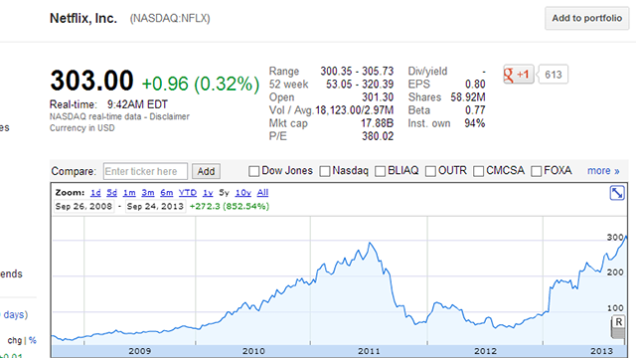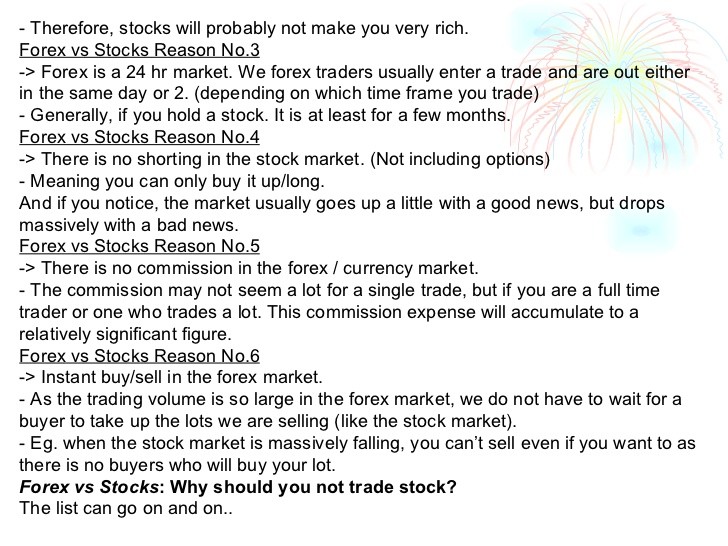How Trading Stocks Can Make You Poor Reasons Why Stock Traders Lose Money
Post on: 16 Март, 2015 No Comment

by Guest Blogger on 2009-01-23 15
Ever think about the reasons why stock traders lose money, their collective shirts and everything else? Heres why and how trading stocks and market timing have cost many a poor soul their nest egg.
Our guest post today is courtesy of Manshu Verma from OneMint. a website with the vision of creating wealth for everyone. If you liked this article and wish to read more about the economy, stocks, investing, credit cards or other topics on personal finance, please consider subscribing to this feed .
Over the years, I have seen several people (including myself) lose fortunes while trading stocks, and Ive found that invariably, it would be for the same reasons. Such reasons appear mostly psychological and occur often in the trading scene. This is not to say that every trader loses money; Ive simply observed that more often than not, traders DO lose money. So I thought to discuss what I believe are the top reasons for this.
6 Reasons Why Stock Traders Lose Money
So how can trading stocks make you poor? For those engaged in the practices of short term trading or market timing. here are some scenarios that may be preventing you from making headway with your investments.
1. Being unable to cut your losses.
The practice of day trading involves the capture of profits as quickly as possible. So its no surprise when traders jump at a 2 or 3 point gain, eager to pull the trigger and book small profits quickly. However, lets see what happens when any one of their stock holdings drops 5 points: the same traders find themselves unable to cut losses quickly, so they wait for a rebound. In fact, even when their stocks drop by larger points, many short term investors become hesitant to book losses.
Every investor has experienced this the paralysis that comes when were forced to sell at a loss. I think that taking a loss is more than just losing money; its also about admitting defeat. Its difficult to do because it would mean that we actually made a mistake. And mistakes with our money is not something many of us are willing to easily accept.
Think its worth it? A 20% loss on a single position wipes out the profits that a trader makes on 10 winning transactions, each returning 2% gains.
2. Taking on the risk of leverage.
Most traders use borrowed money to trade. They typically borrow money to transact at higher trade volumes because theyre dealing with such small margins. To trade at higher volumes, traders get involved with margin trading, where they pay a certain interest rate for the privilege to use other peoples (the banks) money for their purposes. This activity can get pretty unnerving. When youre leveraged this way, and your position turns against you, it can mean big losses. Again, it only takes one big loss to wipe out all the small gains youve made over the course of a given week.
3. Preventing your investments from experiencing long term growth.
My finance professor used to joke that any stock that goes down in value becomes a long-term investment. Theres a lot of truth in that. Its possible that if you have the ability to hold on to a stock long enough, it may just bounce back. But when youre trading, the goal is to make money on large volume, thin margins and quick turnarounds, and well youre not really out to make money by holding on to your stocks. Theres opportunity cost here: if youre trading, you cant really take advantage of the power of compounding . which is what helps build a hefty nest egg over the long term.
4. Learning how to trade during a bull run.
Traders are born during bull runs: this is because they assume that their success with stock trading during a bull market is a result of their market timing skills, rather than due to the perpetual upward movement of stock prices in general.
Most ordinary people who decide to become traders are bitten by the stock market bug during bull markets. Naturally, they start trading stocks that are in the midst of all the action, and which reach new peaks every day. They end up purchasing inflated stocks at peak prices, chasing stocks at higher and higher prices while riding the upward momentum of the bull. They buy stocks indiscriminately, without regard to stock fundamentals, quality or price. Everything is fine till the bust comes, and then it gets rough. I know many friends and relatives who started trading during the boom. They continue to hang on to formerly high-flying Indian real estate stocks, which are now hovering at 10% of their peak values today.
The sad truth is that some of these stocks will never rebound, at least during our lifetimes.
5. Getting whipsawed by volatility.
Have you ever noticed how challenging it is to play the swings in the market? Why is it so tough to time the market? The reason of course, is that we are subject to the whims of volatility, and only extremely experienced traders are likely to be successful with using volatility to their advantage. I have lost count of the number of times the following scenario has occurred:

- Buy a stock, only to have it drop 5 points in ten minutes.
- Get anxious, but wait patiently for a rebound.
- See the stock drop ten more points, then sell it to cut losses.
- See the stock recover and climb above the price you sold it for, before the market closes.
- Get extremely frustrated, but get ready do it all over again the next day.
So be honest how often has this happened to you?
6. Mistaking luck for skill.
Are you lucky? Napoleon was once asked whether he preferred courageous generals or brilliant generals. Supposedly, his response was neither, for he preferred lucky generals.
You may or may not agree, but there are some things we cant explain (just yet), and luck is one of them. Some people have the instinct or luck to get out of bad trades at the right time. Others simply just dont have it. Although some people may actually have the instinct or ability to make the right market moves; most of us probably just rely on luck to get on the winning side of a trade. So, the question here is: how lucky are you?
Ive been subject to the vagaries of the market and Lady Luck far too often to continue trading, so I gave it up a long time back in favor of long term investing. which has been much easier on my wallet and my nerves. I have not regretted this decision since.
Trading Stocks: Next Steps
So what can we learn from this semi-confession? If youve been trading stocks and find yourself agreeing with me on the points Ive made, or see yourself experiencing the same troubles with trading, then you should consider doing any one of two things. Either give up trading altogether or consider taking a hiatus from the big bad world of market timing until youve learned enough about it to get a handle on this activity. You can learn more about trading practices and technical analysis by using stock charting tools which are freely available from brokerage companies or certain discount brokers if you sign up as an account holder. Sites like TradeKing. ETrade and Zecco offer awesome tools, a cheap trading environment and a financial community from which you can learn from.
Trading is both an art (do you have the instinct for it?) and a science (do you have the right tools to do the job?), and until youre well equipped to participate in this avocation, Id strongly recommend that you limit the use of your money for this purpose, and stick to fantasy stock picking.
Categorized under: Investment














